CoLab Invests in the Planning of a Long-term Evaluation of a Comprehensive Post-Secondary Education Support Program for Low-Income Students
CoLab at the Constellation Fund awarded its first evaluation planning grant to MDRC to prepare a rigorous evaluation of the poverty-fighting impacts of providing comprehensive support to low-income students to persist in and complete post-secondary education and start meaningful careers.

Who We Partnered With
We funded MDRC to lead the evaluation planning. Subject to a successful planning process and an acceptable full evaluation proposal, CoLab anticipates funding MRDC subsequently to lead the evaluation.
MDRC is a nonprofit, nonpartisan organization dedicated to improving the lives of people with low incomes through high-quality research and evidence. MDRC has led several prominent impact evaluations across the country supporting post-secondary education access, completion, and success. Colleen Sommo, Senior Fellow, leads MDRC’s research team for this project.
What They Will Do
MDRC’s research team will collaboratively design and plan a longitudinal impact evaluation and a mixed-methods process evaluation of the Wallin Scholars Program. The Wallin Scholars Program supports low-income high school students’ access to and completion of post-secondary education with the aim of bolstering their long-term career pathways and social and economic mobility.
The Wallin Scholars Program, implemented by Wallin Education Partners, is a financial aid, advising, and career pathways program for college students who all belong to low-income households and of whom over 90% are students of color. There are two versions of the Wallin Scholars Program: (1) a two-year year scholarship for students heading to partner community colleges in the Twin Cities, and (2) a four-year scholarship for students planning to enroll at 4-year institutions in Minnesota, Wisconsin, Iowa, North and South Dakota, and Historically Black Colleges and Universities (HBCUs).
The Wallin Scholars Program has three main components:
- Financial aid
- Individualized professional advising
- Expanded access to career opportunities
MDRC will design the study to assess the effectiveness of the Wallin model of financial aid, advising, and support for improving low-income students’ college enrollment and completion and long-term economic well-being. We anticipate that the impact evaluation will involve a randomized controlled trial and the process evaluation will involve qualitative and quantitative methods.
When It Will Happen
The approximately nine-month planning period launched in January 2024 with the goal of research recruitment beginning with the 2024-25 school year enrollment of high school seniors.
Why It Matters
This study will contribute to and build on an emerging body of evidence on college completion and student success from impact evaluations. It will add value by producing actionable evidence on the effectiveness of an intensive, comprehensive, and scalable approach to improving low-income students’ post-secondary education access and success and career pathways.
Moreover, the effects of such programs are rarely measured beyond college completion and other relatively short-term outcomes. This study will follow the impact of the support to students for many years beyond their time in the program. This way, we can uniquely understand whether and how short-term outcomes like college enrollment and completion create pathways to long-term improvements in people’s employment, income, upward mobility, and their children’s outcomes.


